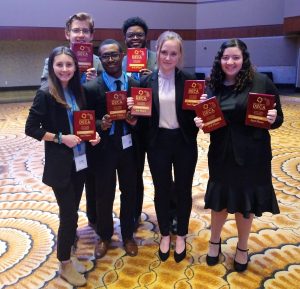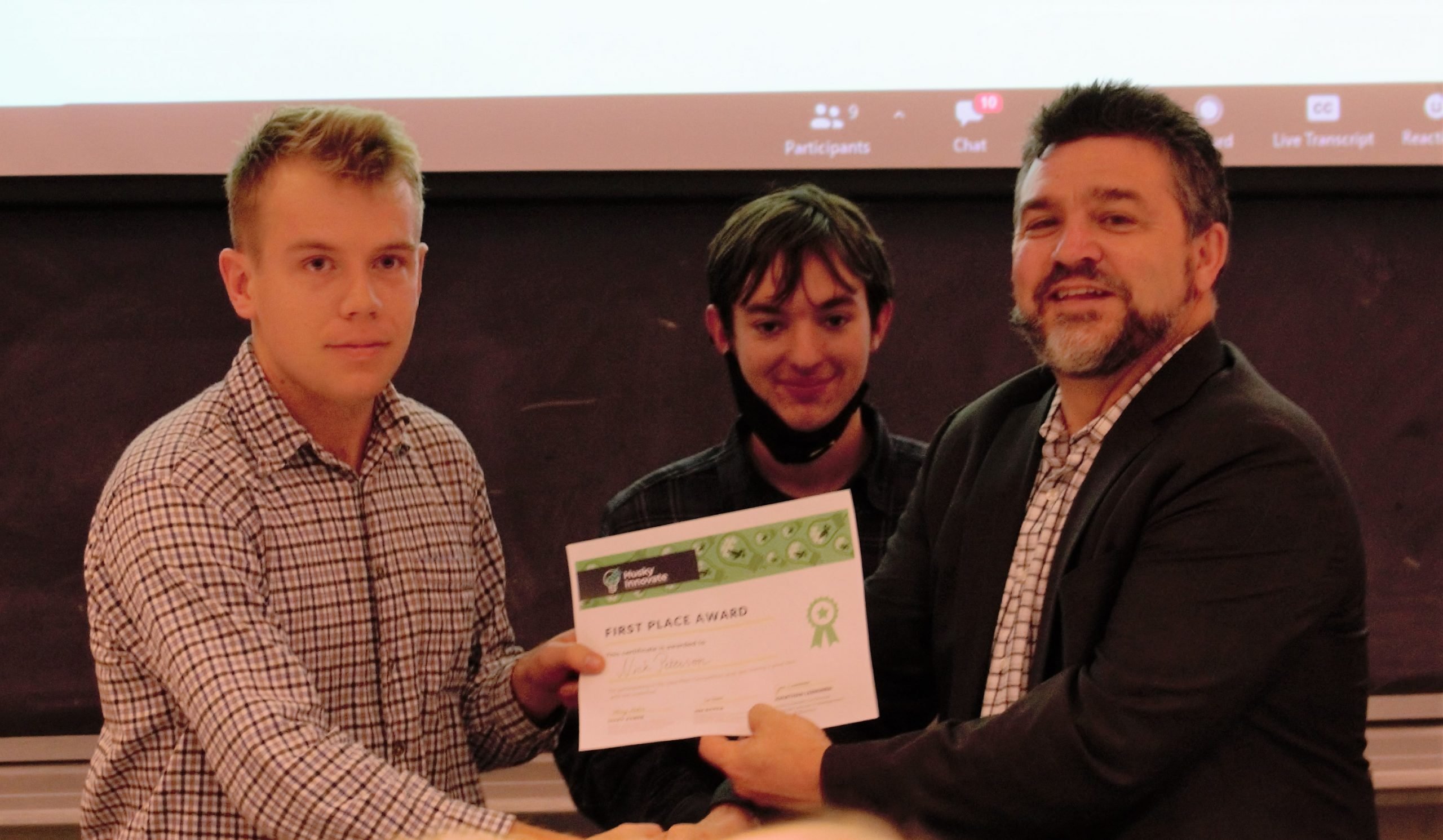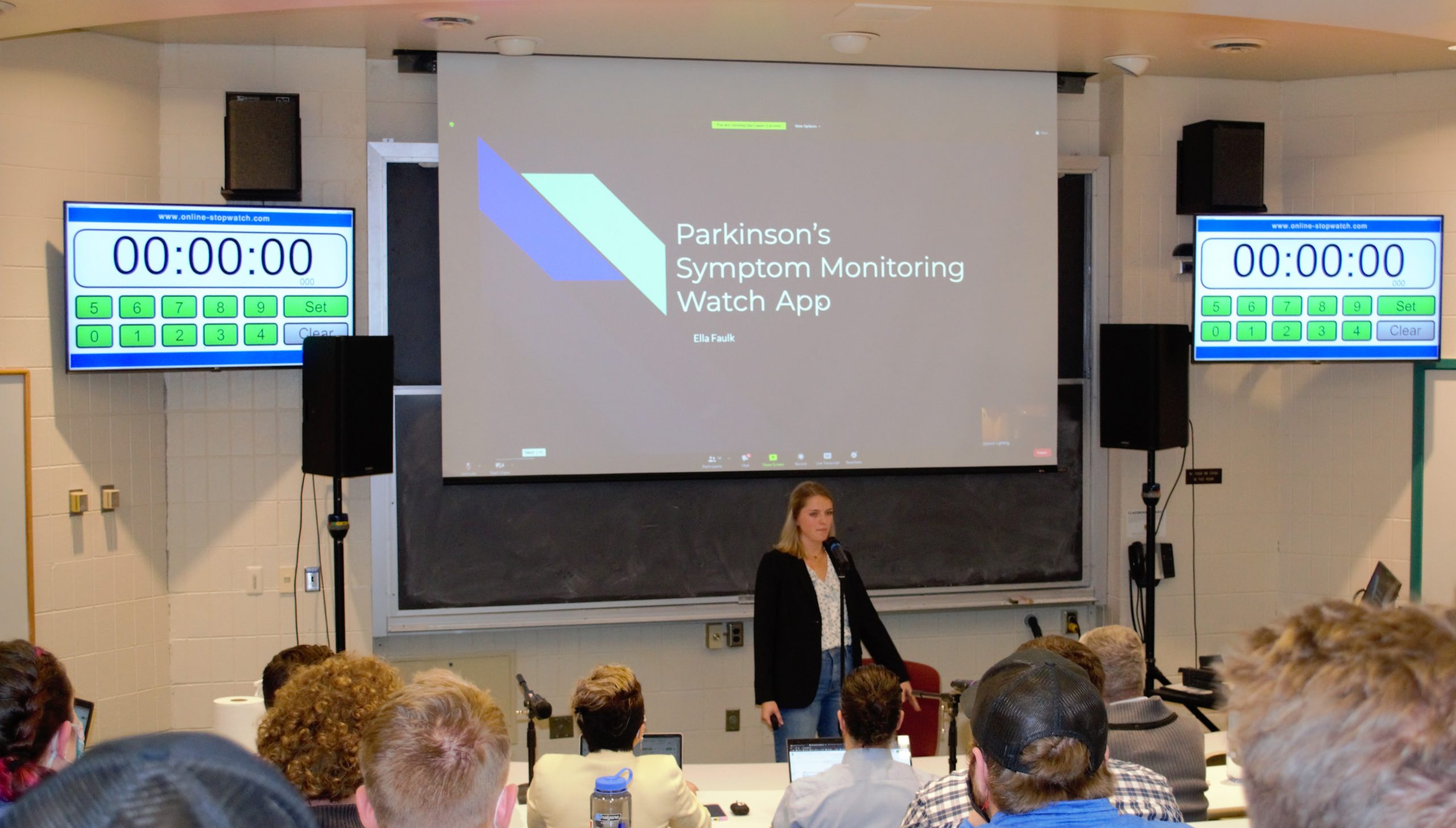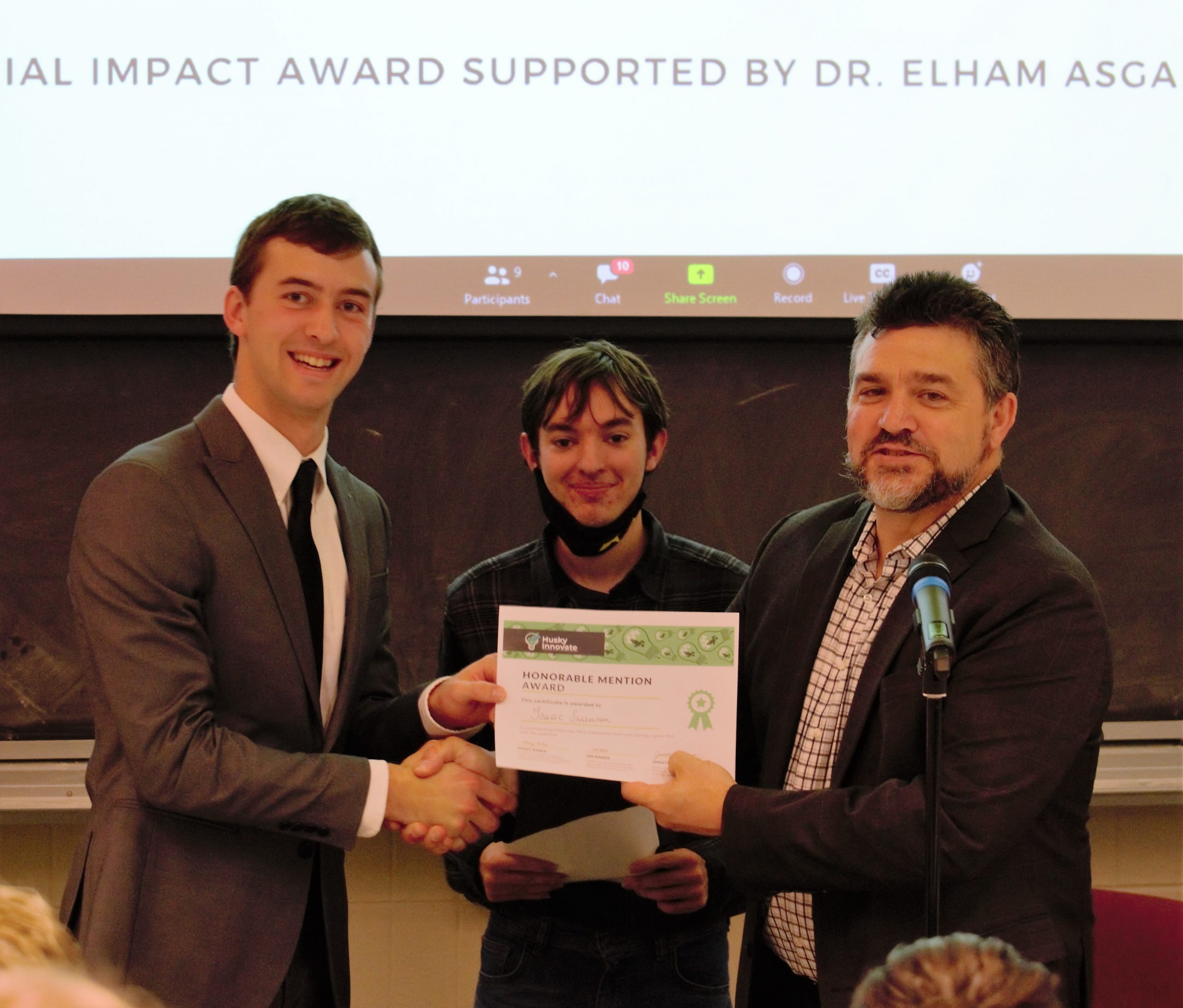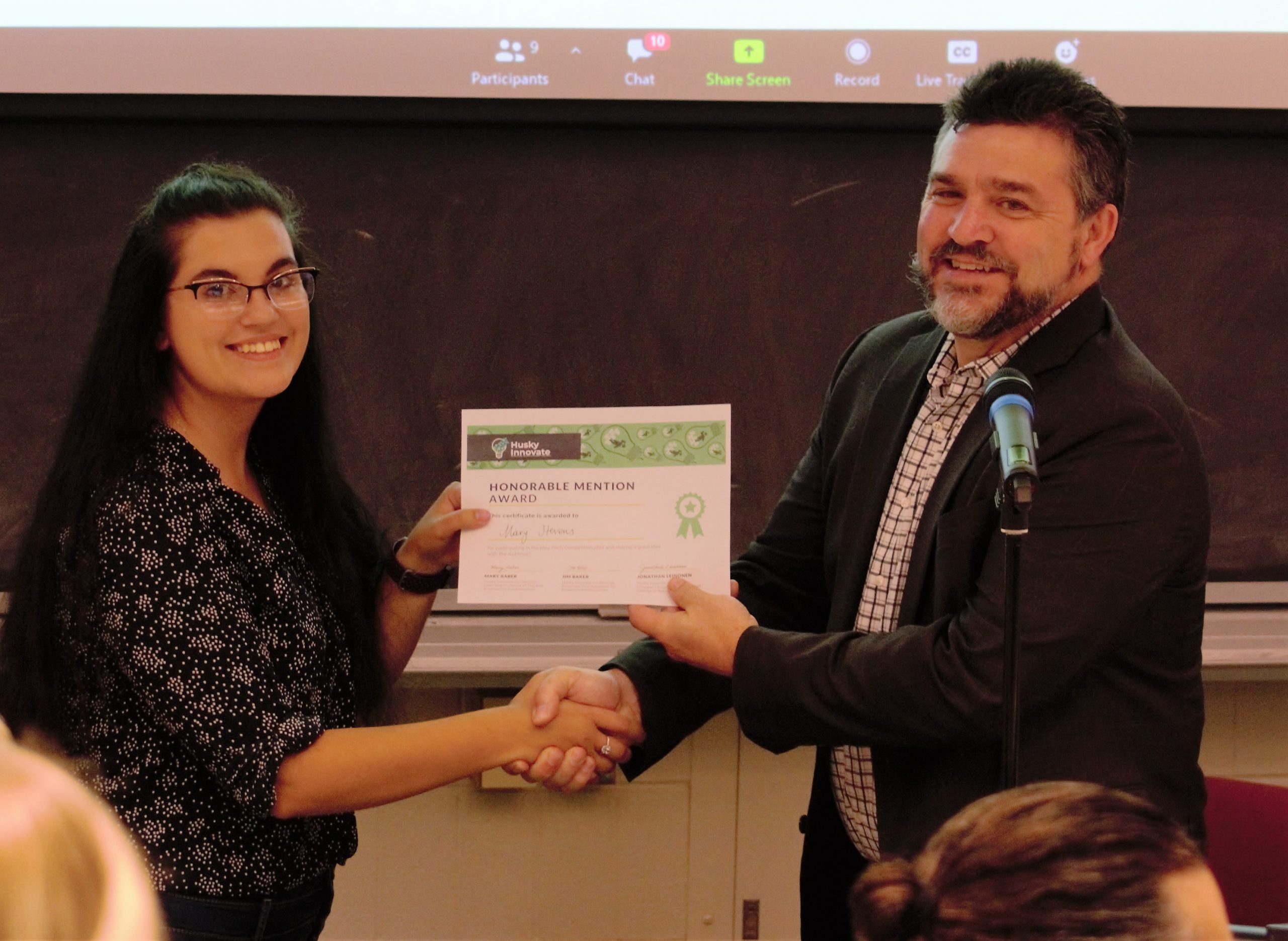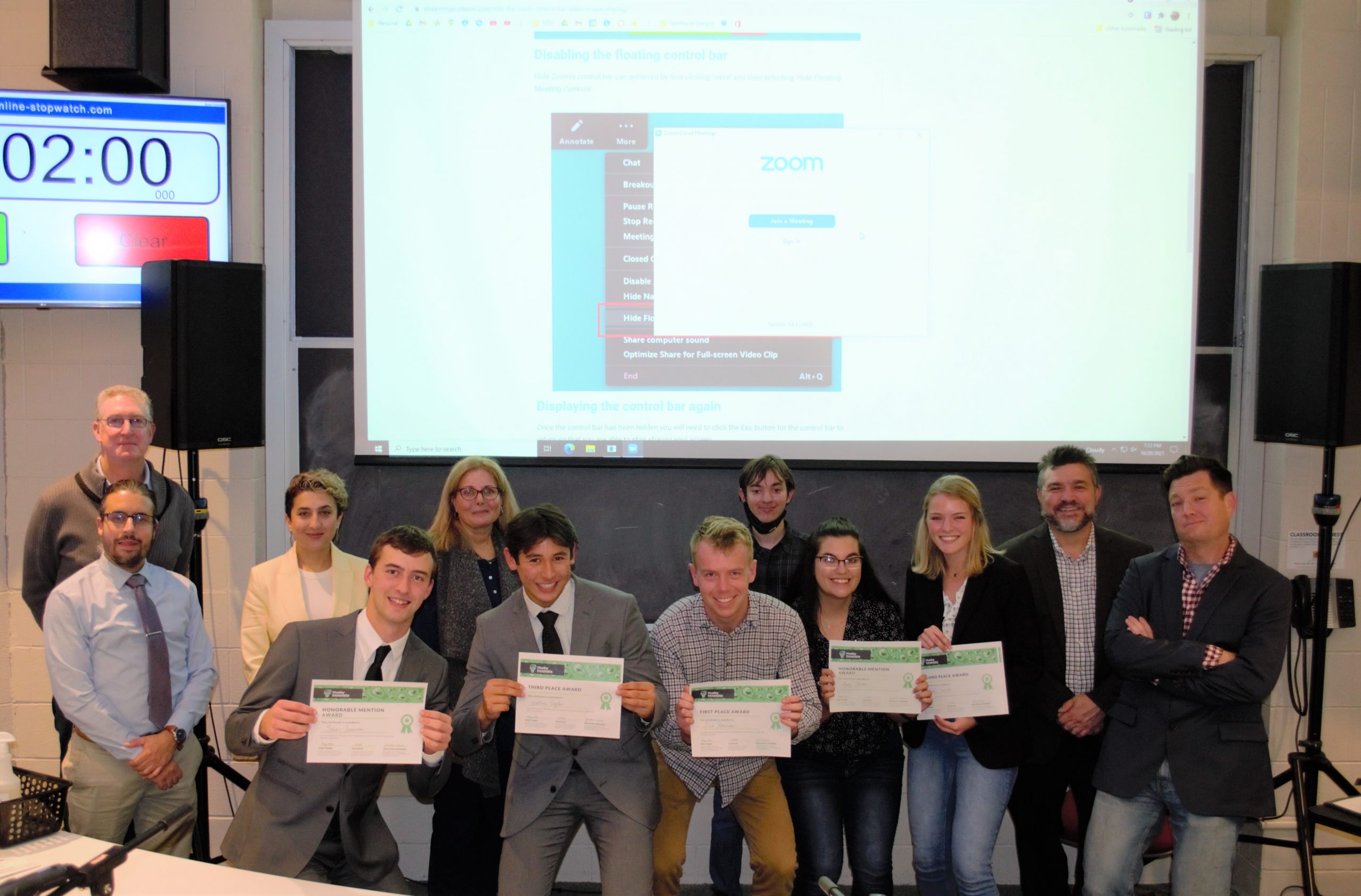
During spring semester, the Michigan Tech Finance Club hosted a 10-week stock competition open to all College of Business (COB) majors and minors. Each of the 29 participants received $100,000 in virtual dollars to use on the Investopedia simulator. At the conclusion of trading on April 12, the top three winning portfolios received cash prizes from the COB Dean’s Office.

First place $500—Madison Mattila
“I really enjoyed the competition! It was fun to compete against classmates. It also was valuable to spend time watching the market and using the simulator. I’ve been working on a strategy for a while, which I’ve yet to perfect, so I don’t want to spread too much about it right now.”
Second place $300—James Zuzelski

“This was an amazing experience. It motivated me to try new things. My strategy was to capitalize on medium- to high-risk stocks that were trending due to current and near-future geopolitical factors. Due to the short time frame I went with a high-risk, low-diversity, individual stock portfolio.”
Third place $200—Bill Rautiola

“I consider myself an experienced trader, having done a fair amount of trading on my own. My strategy for this game was to invest in energy sectors, including oil. I also placed a couple option trades.”
The Finance Club at Michigan Tech, advised by Xin Li and supported by the Undergraduate Student Government and the COB, promotes the interest in and knowledge of the field of finance. Members have access to career development opportunities, guidance from Applied Portfolio Management Program (APMP) members, and resources within the APMP Lab. In addition, club members take annual trips to visit mutual funds, the Federal Reserve, investment firms, and the futures and options exchange market in the Midwest.

Club President Elisabeth Mattson said plans are in place to hold the competition next year and interested participants can connect with incoming President Kevin Hoefer (kdhoefer@mtu.edu) for more information.
“The Finance Club Stock Competition allowed students across the College of Business to try out new investing strategies in a low-risk environment, while competing with their peers.
The winners had different strategies and were able to share knowledge and skills with participants, many of whom are excited to try again next year.”
About the College of Business
The Michigan Tech College of Business offers undergraduate majors in accounting, construction management, economics, engineering management, finance, management, management information systems, and marketing, as well as a general business option. Graduate degrees include the TechMBA®, a Master of Engineering Management, a Master of Science in Accounting, and a Master of Science in Applied Natural Resource Economics.

